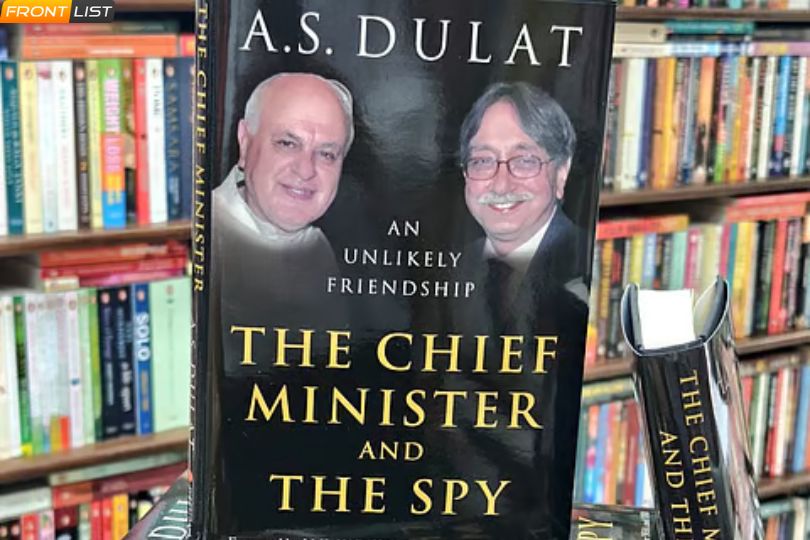Frontlist | The best historical novels to escape into another world
Frontlist | The best historical novels to escape into another worldon Jan 22, 2021

Along with the rest of “the Ton” I am enjoying the Netflix adaptation of Julia Quinn’s series of Bridgerton novels. What makes it so good is not a strict adherence to historical facts (guys, it’s not and never will be “Your Dukeship”) but producer Shonda Rhimes and her team’s understanding of storytelling. Had it been given a more traditional British costume drama treatment, Bridgerton wouldn’t work. Instead, in an early episode, the string quartet at the ball of the season strikes up with a version of Ariana Grande’s “thank u, next”. Underlining the savagery of the Regency marriage mart, Bridgerton exposes the double standards for men and women and the casual brutality and hypocrisy of life at that time.
If you want to fully immerse yourself in the era I would urge you to start with the all-time queen of Regency romance: not my fellow Bath-based novelist Jane Austen, but the peerless Georgette Heyer. Heyer loathed being thought of as a frothy, “feminine” writer and it’s a shame that all too often she’s labelledas one. She is as effective as Patrick O’Brian at depicting the same times but shamefully not as celebrated, because she wrote about women in drawing rooms, not men at war. Heyer’s novels are delicious: meticulously researched, deftly plotted and hugely romantic, but never sentimental. I devoured her as a teenager but she works at any time of life. Start with my favourite, Venetia, or else try Bath Tangle, Frederica, or Regency Buck, where the heroine has her own #MeToo moment with the Prince Regent.
“Penitence Hurd and the Plague arrived in London on the same day …” One of the joys of historical fiction is finding an era you knew little about and losing yourself in it. The Vizard Mask by Diana Norman (also known as Ariana Franklin) is one of those books. It is about a Puritan orphan who becomes a player on the London stage and features the Restoration, Aphra Behn, a heart-stopping production of Shakespeare’s most romantic play, Much Ado About Nothing, and there’s even a lockdown.
The late Helen Dunmore’s final book, Birdcage Walk, is a remarkable novel, set after the French Revolution in Bristol, where radical ideas were nurtured by those both profiting from and virulently opposed to the slave trade. You walk the streets of the 18th-century city as you read.
In The Visitors by Sally Beauman a young English girl, Lucy, is sent to Egypt in 1922 to convalesce and witnesses the obsessive hunt for Tutankhamun’s tomb. The thudding sense of fear as the opening of the tomb draws closer, the personalities involved, the desert heat – it is all told so well. It reawakened my interest in that extraordinary period, in the history of Ancient Egypt, and even gave me an idea that eventually became a novel of my own.
The Morning Gift is one of Eva Ibbotson’s historical romances, about Ruth and her family and their flight from Nazi Austria. The beauty of their old life in Vienna and the descriptions of their refugee existence in north London are heart-rending; the feeling of not belonging to your new home, of wanting to love where you live, stayed with me long after reading. It is also sweetly romantic if you want cheering up. And who doesn’t at the moment?
• The Garden of Lost and Found by Harriet Evans is published by Headline
As 2021 begins …
… we have a small favour to ask. Millions are turning to the Guardian for open, independent, quality news every day, and readers in 180 countries, including India, now support us financially.
We believe everyone deserves access to information that’s grounded in science and truth, and analysis rooted in authority and integrity. That’s why we made a different choice: to keep our reporting open for all readers, regardless of where they live or what they can afford to pay. This means more people can be better informed, united, and inspired to take meaningful action.
In these perilous times, a truth-seeking global news organisation like the Guardian is essential. We have no shareholders or billionaire owner, meaning our journalism is free from commercial and political influence – this makes us different. When it’s never been more important, our independence allows us to fearlessly investigate, challenge and expose those in power.
In a year of unprecedented intersecting crises in 2020, we did just that, with revealing journalism that had real-world impact: the inept handling of the Covid-19 crisis, the Black Lives Matter protests, and the tumultuous US election.
We have enhanced our reputation for urgent, powerful reporting on the climate emergency, and moved to practice what we preach, rejecting advertising from fossil fuel companies, divesting from oil and gas companies and setting a course to achieve net zero emissions by 2030.
If there were ever a time to join us, it is now. Your funding powers our journalism, it protects our independence, and ensures we can remain open for all. You can support us through these challenging economic times and enable real-world impact. Source: The Guardian



.jpg)






.jpg)

.jpg)
.jpg)
.jpg)
.jpg)

.jpg)










Sorry! No comment found for this post.